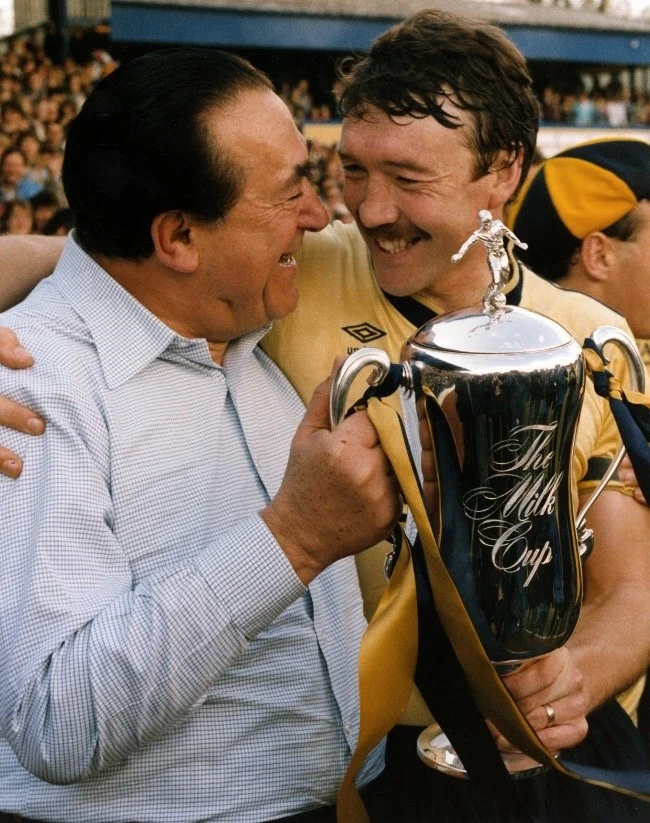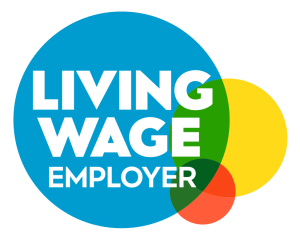For anyone who’s not a fan of the so-called ‘beautiful game’, the passions evoked by football are sometimes difficult to comprehend. Or at least so I imagine, as a fan myself. Why does football attract so much more money, energy and emotion than other, far more worthy causes? Why do millions of fans flock year after year to freezing terraces to watch teams that have almost no hope of ever winning anything, in a game increasingly dominated by a small, exclusive clique of ultra-wealthy clubs? And why would anyone in their right mind travel half-way across the country – in the middle of the week, no less – to watch twenty-two overpaid professionals kick a ball about on a cold, wet Tuesday night in Stoke?
In answer to these questions, I could invoke the importance of community and local history, the catharsis of shouting at referees (where else can you scream such abuse at someone and get away with it?), or the sheer thrill that many fans experience at the skill – and sometimes luck – that the game so frequently requires. But in truth, there are as many answers to these questions as there are football fans. What seems clear, however, is that football won’t be relinquishing its title as the world’s most watched and popular sport anytime soon. And as a result, the beautiful game’s more than just, well, a game; it’s big business too.
In 2019, the accountancy firm Deloitte valued the European football market at over £25bn.[1] Merchandising, broadcasting rights, advertising – it all adds up. This money isn’t spread evenly among clubs, but rather concentrated in the hands of a privileged few, who’ve transformed themselves into highly successful global brands, capable of making – and spending – hundreds of millions in a single year. Think Chelsea, Man City, Man United, Liverpool, Real Madrid, Barcelona and Juventus – clubs whose fanbases have long since outgrown the areas they claim to represent.

At the end of last month, the profit-driven trajectory of football marked another milestone, perhaps its most significant to date: the announcement of the European Super League, or ESL. Twelve of Europe’s richest and most popular clubs, including those mentioned above, announced that they were forming their own league, from which they couldn’t be relegated. There would be twenty members in all: three more permanent ones, yet to be announced, and five non-permanent ones, who would have to qualify through their domestic leagues. The organisers of the ESL were proposing blockbuster football week in, week out, and the potential profits from broadcasting rights alone were enormous (certainly enough to offset the financial impact of the pandemic). What could go wrong?
Well, just about everything, it turned out. Reaction to the scheme was almost universally negative, not least among football’s most volatile stakeholders, the fans, who protested in their thousands. Sensing the mood, several clubs withdrew, and plans for a European Super League were shelved within forty-eight hours (though not, it should be emphasised, scrapped). But while many in the football world contemplated what this all meant for the future of the sport, I found myself thinking about its past, and about my own club in particular: Oxford United.
From the Global to the Local
Following the announcement of the ESL, organisers were accused of putting money before fans and the spirit of competition. In this respect, the controversy recalls another American-style corporate football proposal that collapsed in the face of fan rage: the Thames Valley Royals proposal of the early 1980s.
In April 1983, the city of Oxford found itself at the centre of a major regional controversy, when the owner and chairman of Oxford United FC, Robert Maxwell, announced a merger between his club and nearby Reading FC, in which he was looking to take a controlling interest. The resulting club would be known as the Thames Valley Royals, combining the name of the region covering Oxford and Reading with the nickname of Reading FC, ‘The Royals’.

The scheme was the brainchild of Maxwell, who led an eventful life, to say the least. Known originally as Abraham Lajbi, and later Ján Ludvík Hoch, Maxwell was born into a poor Jewish family in Czechoslovakia in 1923. Most of his relatives died in the Holocaust, though Maxwell managed to escape, travelling first to France, where he joined the Czechoslovak army in exile, and then, following the Fall of France, to Britain, where he joined the British Army and took part in the Normandy Landings. He took the name Robert Maxwell in 1945, and became a naturalised British subject in 1946. Over the following decades, Maxwell built up a publishing empire, and between 1964 and 1970 he served as Labour MP for Buckingham. From the 1960s, Maxwell moved increasingly into newspaper ownership, which brought him into conflict with Rupert Murdoch, whom he viewed as his greatest rival and inspiration. By the early 1980s, Maxwell was living at Headington Hall, a lavish Italianate mansion in east Oxford, where he hosted extravagant parties for the rich and famous.[3]
In 1982, Maxwell bought Oxford United, saving them from bankruptcy in the process. Founded in 1893 as Headington United, Oxford were in the Third Division of English football at the time, and in spite of Maxwell’s intervention, they continued to struggle financially throughout the 1982-83 season. Reading, who were also in the Third Division, were even shorter on funds, and Maxwell insisted that without a merger, the two clubs would have to fold. The amalgamation would see a new stadium constructed between Oxford and Reading, and the new club would be financed partly by the sale of Oxford’s stadium, the Manor Ground (now the Manor Hospital), and Reading’s Elm Park. Oxford’s legendary manager Jim Smith would take over as manager of the Thames Valley Royals, while Reading manager Maurice Evans would serve as his deputy.
What Maxwell seems to have underestimated, however, is the strength of fan feeling. Supporters of both Oxford and Reading, who considered themselves local rivals, were appalled. Fans of both clubs organised a series of protest marches, while at Oxford’s next game on 23 April, against Wigan Athletic, fans staged a sit-in on the pitch, delaying kick-off by thirty minutes. Maxwell was in the director’s box that day, and he was confronted with a chorus of abuse from the crowd, many of whom held banners reading ‘Judas’. The larger-than-life Maxwell wasn’t one to give up easily, however. He doubled down on his proposal, insisting on BBC Radio Oxford that without the merger, ‘both Reading and Oxford will be dead before the beginning of next season’, and that ‘Nothing short of the end of the earth will prevent this from going through.’[4]
In the event, the project failed, though not so much because of fan pressure, as because a Reading businessman and former Reading player, Roger Smee, raised questions about the legality of Maxwell’s proposed takeover of his former club, causing it to fall through.[5] Both sets of supporters breathed a heavy sigh of relief. As for Maxwell, he accepted the failure of his scheme. He continued to own Oxford, and continued to grow his media empire, buying the Mirror Group of newspapers in 1984. Maxwell died under mysterious circumstances in 1991, when he drowned off the coast of the Canary Islands, having apparently fallen from his yacht, the Lady Ghislaine (so named for his beloved daughter, who has since acquired a notoriety of her own). Within weeks of Maxwell’s death, it became apparent that his corporate empire was on the brink of collapse, and that the late mogul had pilfered the pension funds of his companies to cover his mounting debts.

By 1985, Jim Smith had guided Oxford to the First Division of English football. He was succeeded as manager by Maurice Evans, who led Oxford to their greatest triumph in 1986, when they won the Milk Cup in a 3-0 victory over QPR at Wembley; the club’s first and only major trophy to date. Maxwell therefore financed the most successful period in Oxford’s history, which remains a source of unease for some fans, given all that was revealed only a few years later.
Following Maxwell’s death in 1991, and the ignominious collapse of his media empire, Oxford experienced a turbulent decade financially, marked by ongoing uncertainty over a potential new ground. Finally, in 2001, Oxford relocated from the Manor Ground to the newly built Kassam Stadium, near Blackbird Leys. They continue to play there today, pushing for promotion to the Championship, now the second tier of English football. Though sometimes overlooked by the hordes of students and tourists who descend on Oxford every year, the club boasts a loyal fanbase, many thousands of whom flock to its wind-swept terraces week after week, in support their beloved ‘Yellows’ – so nicknamed for their distinctive kit. Thus Oxford United remains an important part of the local community, though one which might well have disappeared many decades ago, if only Robert Maxwell had had his way in 1983.
Written by Charlie Beirouti
The author would like to thank fellow Oxford fans Jerome and Danny Waite for their feedback on the first draft of this piece.
References
[1] Bill Wilson, ‘Premier League leads European football to £25bn valuation’, BBC News, 30 May 2019, https://www.bbc.co.uk/news/business-48444575, accessed 04 May 2021.
[2] Andrew Ffrench, ‘Looking back: More pictures of Ghislaine Maxwell with Robert Maxwell at Oxford United’, Oxford Mail, 10 August 2020, https://www.oxfordmail.co.uk/news/18639856.looking-back-pictures-ghislaine-maxwell-robert-maxwell-oxford-united/, accessed 04 May 2021. Picture used courtesy of the Oxford Mail.
[3] For Maxwell, see John Preston, Fall: The Mystery of Robert Maxwell (London: Viking, 2020).
[4] Nabil Hassan, ‘Robert Maxwell’s phantom club, the Thames Valley Royals’, BBC Sport, 13 June 2013, https://www.bbc.co.uk/sport/football/22862495.amp, accessed 04 May 2021.
[5] Matthew Crist, ‘The Club that Never Was: The Story of the Thames Valley Royals’, The Sportsman, 23 November 2017, https://www.thesportsman.com/articles/the-club-that-never-was-the-story-of-the-thames-valley-royals, accessed 04 May 2021
[6] David Pritchard, ‘Milk Cup-winning captain Malcolm Shotton backing Oxford United to win at Wembley’, Oxford Mail, 02 April 2016, https://www.oxfordmail.co.uk/sport/14399894.milk-cup-winning-captain-malcolm-shotton-backing-oxford-united-win-wembley/, accessed 04 May 2021. Picture used courtesy of the Oxford Mail.





